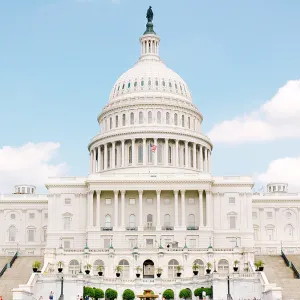America's leading research universities guard our nation's security by protecting knowledge, trade secrets, and classified information from foreign interference. In fact, AAU members have a vested interest in making sure this is the case. AAU works closely with its members and the government to ensure that appropriate security measures are in place at all times. Our members also work hard to strike a balance between two key priorities. One, that research must remain open to succeed. The integrity of our nation's research depends on it. On the other hand, some sensitive data must also be protected. AAU and APLU have jointly written a guide to help our members deal with this issue. The guide provides principles and values that steer our actions and helps universities limit risks.
Body

As lawmakers consider measures related to securing federally funded research data and intellectual property, it is important to understand the current state of play for research security in the country to avoid new requirements that are duplicative, unnecessary, or counterproductive

One pager for advocacy focused on securing scientific research against foreign threats.

AAU Statement on the House Committee on Science, Space, and Technology Hearing "Examining Federal Science Agency Actions to Secure the U.S. Science and Technology Enterprise."

This resource document identifies key terms; effective practices proposed by institutions and government and non-government entities; links to various government and non-government entity lists, and topical analysis and proposed policy recommendations in several key areas..
Search Our Key Issues Library
Browse recent items or search for a specific topic or document.
AAU joined ACE and seventeen other higher education associations to send a letter to Senate and House Armed Services Committee leaders offering comments on provisions being considered for the FY 2025 National Defense Authorization Act (NDAA).
Agency Budgets | Letters | Science & Security | Department of Defense | Innovation and Competitiveness
This background briefing on Foreign Malign Influence and Higher Education was prepared by the Office of the Director of National Intelligence, the Department of Education, and the Federal Bureau of Investigation. This product is the result of years of effort by the interagency to create coordinated definitions for key threats to U.S. Institutions of Higher Education (IHEs), including Foreign Malign Influence (FMI), Misappropriation of Research, and Transnational Repression (TNR).
AAU and APLU submitted a joint letter addressed to the leadership of the House and Senate Armed Services Committees expressing their concerns and recommendations regarding the Fiscal Year 2025 (FY25) National Defense Authorization Act (NDAA).
Agency Budgets | Letters | Science & Security | Department of Defense | Innovation and Competitiveness
AAU joined ACE and four other higher education associations to send a letter to House leaders regarding several pieces of legislation related to the People's Republic of China (PRC) being considered by the U.S. House of Representatives that will impact colleges and universities.
AAU, AAAS, APS, APLU, and COGR submitted a joint response to the Department of Energy's Office of Research, Technology and Economic Security in regards to the current risk matrices under development. The letter outlines the need for soliciting feedback from the research community to ensure a strong research security review process.




